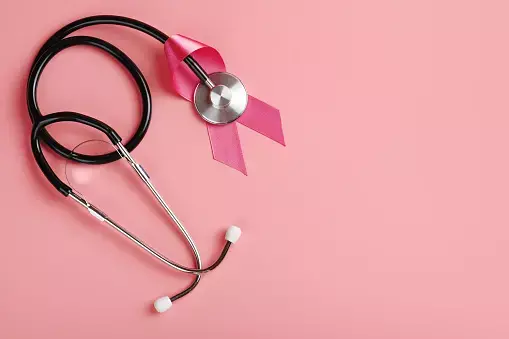- Home
- Medical news & Guidelines
- Anesthesiology
- Cardiology and CTVS
- Critical Care
- Dentistry
- Dermatology
- Diabetes and Endocrinology
- ENT
- Gastroenterology
- Medicine
- Nephrology
- Neurology
- Obstretics-Gynaecology
- Oncology
- Ophthalmology
- Orthopaedics
- Pediatrics-Neonatology
- Psychiatry
- Pulmonology
- Radiology
- Surgery
- Urology
- Laboratory Medicine
- Diet
- Nursing
- Paramedical
- Physiotherapy
- Health news
- Fact Check
- Bone Health Fact Check
- Brain Health Fact Check
- Cancer Related Fact Check
- Child Care Fact Check
- Dental and oral health fact check
- Diabetes and metabolic health fact check
- Diet and Nutrition Fact Check
- Eye and ENT Care Fact Check
- Fitness fact check
- Gut health fact check
- Heart health fact check
- Kidney health fact check
- Medical education fact check
- Men's health fact check
- Respiratory fact check
- Skin and hair care fact check
- Vaccine and Immunization fact check
- Women's health fact check
- AYUSH
- State News
- Andaman and Nicobar Islands
- Andhra Pradesh
- Arunachal Pradesh
- Assam
- Bihar
- Chandigarh
- Chattisgarh
- Dadra and Nagar Haveli
- Daman and Diu
- Delhi
- Goa
- Gujarat
- Haryana
- Himachal Pradesh
- Jammu & Kashmir
- Jharkhand
- Karnataka
- Kerala
- Ladakh
- Lakshadweep
- Madhya Pradesh
- Maharashtra
- Manipur
- Meghalaya
- Mizoram
- Nagaland
- Odisha
- Puducherry
- Punjab
- Rajasthan
- Sikkim
- Tamil Nadu
- Telangana
- Tripura
- Uttar Pradesh
- Uttrakhand
- West Bengal
- Medical Education
- Industry
Left-Breast Radiation Doubles risk of CAD in Young Women: Study

Young women treated with radiation therapy (RT) for left-sided breast cancer have over twice the risk of CAD compared with women treated with RT for right-sided breast cancer, suggests a study published in the JACC: CardioOncology.
Radiation therapy (RT) for breast cancer increases the risk of coronary artery disease (CAD). Women treated for left- vs right-sided breast cancer receive greater heart radiation exposure, which may further increase this risk. The risk of radiation-associated CAD specifically among younger breast cancer survivors is not well defined.
A team of researchers conducted a study to report CAD risk among participants in the Women's Environmental Cancer and Radiation Epidemiology Study.
A total of 1,583 women who were <55 years of age when diagnosed with breast cancer between 1985 and 2008 completed a cardiovascular health questionnaire. The risk of radiation-associated CAD was evaluated by comparing women treated with left-sided RT with women treated with right-sided RT using multivariable Cox proportional hazards models. Effect modification by treatment and cardiovascular risk factors was examined.
The results of the study are as follows:
· In total, 517 women who did not receive RT and 94 women who had a pre-existing cardiovascular disease diagnosis were excluded, leaving 972 women eligible for analysis. Their median follow-up time was 14 years (range 1-29 years).
· The 27.5-year cumulative incidences of CAD for women receiving left- vs right-sided RT were 10.5% and 5.8%, respectively (P = 0.010).
· The corresponding HR of CAD for left- vs right-sided RT in the multivariable Cox model was 2.5 (95% CI: 1.3-4.7).
· There was no statistically significant effect modification by any factor evaluated.
Thus, the researchers concluded that young women treated with RT for left-sided breast cancer had over twice the risk of CAD compared with women treated with RT for right-sided breast cancer. Laterality of RT is independently associated with an increased risk of CAD and should be considered in survivorship care of younger breast cancer patients.
Reference:
Coronary Artery Disease in Young Women After Radiation Therapy for Breast Cancer: The WECARE Study by Carlson L et. al published in the JACC: CardioOncology.
https://doi.org/10.1016/j.jaccao.2021.07.008
Dr. Shravani Dali has completed her BDS from Pravara institute of medical sciences, loni. Following which she extensively worked in the healthcare sector for 2+ years. She has been actively involved in writing blogs in field of health and wellness. Currently she is pursuing her Masters of public health-health administration from Tata institute of social sciences. She can be contacted at editorial@medicaldialogues.in.
Dr Kamal Kant Kohli-MBBS, DTCD- a chest specialist with more than 30 years of practice and a flair for writing clinical articles, Dr Kamal Kant Kohli joined Medical Dialogues as a Chief Editor of Medical News. Besides writing articles, as an editor, he proofreads and verifies all the medical content published on Medical Dialogues including those coming from journals, studies,medical conferences,guidelines etc. Email: drkohli@medicaldialogues.in. Contact no. 011-43720751


